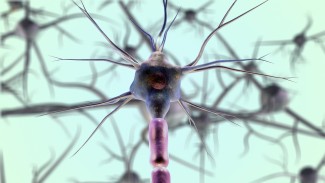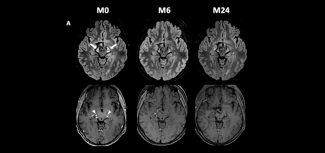
In 2023, the team led by Professor Fanny Mochel (AP-HP, Sorbonne University), a Paris brain Institute researcher, showed that daily dose of leriglitazone slow down the progression of myelopathy in patients with X-linked adrenoleukodystrophy, and...
06.28.2024
Research, science & health
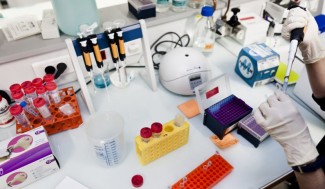
In 2024, Paris Brain Institute launched the 4th edition of the Big Brain Theory Program (BBT), designed to foster new and bold projects addressing the next challenges in neuroscience. For the first time, this call is open to our international...
06.14.2024
Institutional
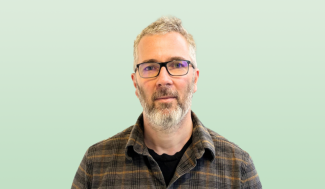
Eric Bardinet est ingénieur de recherche (CNRS) et responsable opérationnel du CENIR, la plateforme d’imagerie de l’Institut du Cerveau. Dans ce portrait, il revient sur son parcours, son rôle à l’Institut du Cerveau et sur l’arrivée de la nouvelle...
06.06.2024
Portraits
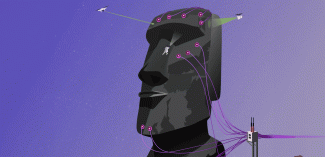
When a patient is admitted to intensive care due to a disorder of consciousness—such as a coma—establishing their neurological prognosis is a crucial yet challenging task. To reduce the uncertainty that precedes the medical decision, a group of...
05.30.2024
Research, science & health
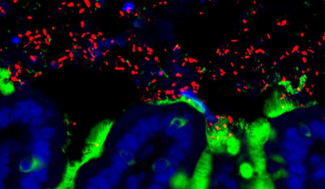
The way we make decisions in a social context can be explained by psychological, social, and political factors. But what if other forces were at work? Hilke Plassmann and her colleagues from the Paris Brain Institute and the University of Bonn show...
05.16.2024
Research, science & health
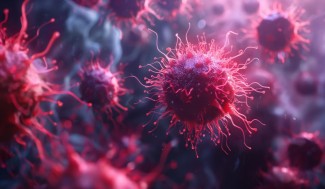
Metachromatic leukodystrophy is a rare genetic disorder that mainly affects young children and results in severe neurological symptoms accompanied by a loss of motor and intellectual capacities. At Paris Brain Institute, Françoise Piguet and her...
04.22.2024
Research, science & health
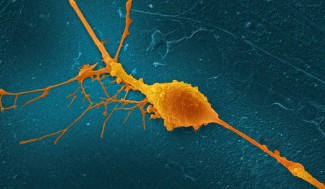
Multiple sclerosis is a heterogeneous disease whose manifestations vary considerably from patient to patient and whose course appears, on the surface, unpredictable. Hence, it is crucial to identify the factors that drive disability progression. In a...
04.02.2024
Research, science & health

A giant billboard flashes on the side of a country road. Why does it catch our attention more easily than other details in the landscape? At Paris Brain Institute, Tal Seidel Malkinson, Jacobo Sitt, Paolo Bartolomeo, and their colleagues show that...
03.26.2024
Research, science & health
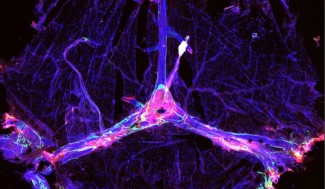
Sometimes, in healthy tissues, mutated cells are seen that may or may not become malignant tumours. This phenomenon has already been described in the endometrium, oesophagus and epidermis. At Paris Brain Institute, Matthieu Peyre and his colleagues...
03.15.2024
Research, science & health
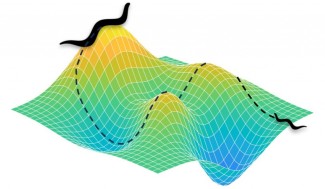
From the very first weeks of life, countless connections are forged between neurons to ensure the propagation of nerve signals. These connections gradually shape the final architecture of the brain, known as the connectome. Our ability to perform...
03.08.2024
Research, science & health
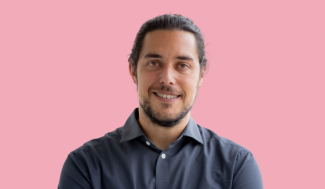
Nikolas Karalis joined the Brain Institute in January 2024. His work will focus on the fundamental link between brain activity and neurotransmitter balance.
02.15.2024
Portraits
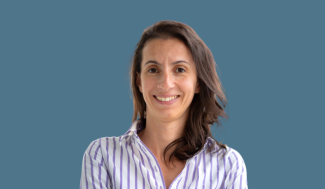
Dafni Hadjieconomou joined Paris Brain Institute in September 2023. Her research will focus on the “brain-gut” axis, with the aim of identifying the fundamental, evolutionarily conserved mechanisms by which intestinal neurons regulate metabolism.
01.08.2024
Portraits

